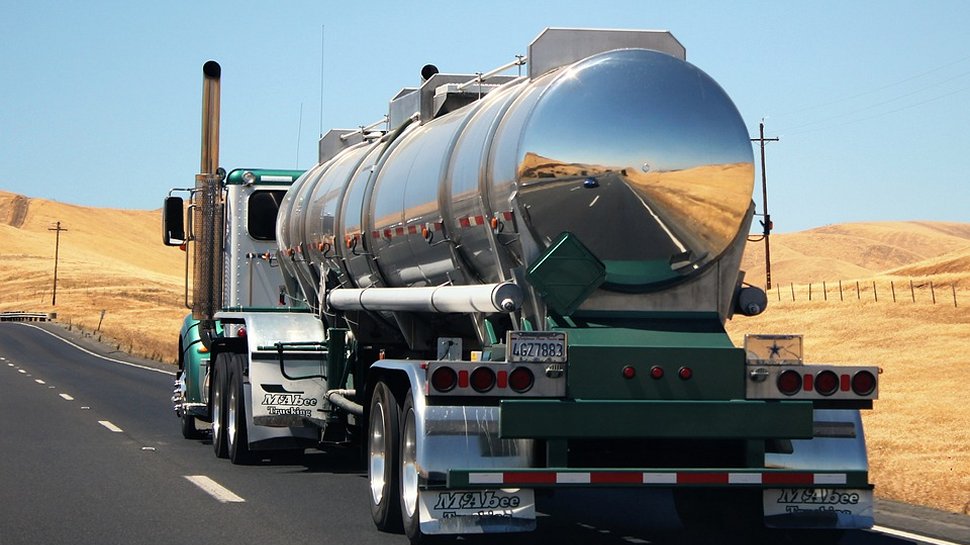Sponsored by OneStep GPS
How does GPS fleet tracking reduce operational costs?
We list the best tips to manage your fleet

Any organization that operates a fleet of vehicles needs an effective GPS fleet tracking system, and a good system can help your organization be more effective while having a significant impact on operational costs.
While GPS fleet tracking might be an expensive investment, it can earn its keep many times over by saving your business, educational institution, or public sector organization a huge amount of cash.
But while GPS fleet tracking can have a huge impact, these systems can also seem complex and potentially overwhelming.
Dive under the bonnet, though, and these complex systems can have a huge financial and operational impact on any organization with a large number of vehicles. Stick with us to find out how GPS fleet tracking can save you money and make you more productive.
OneStep GPS is offering $10 off per vehicle to all TechRadar readers
As a TechRadar reader, you’re in luck, since you can get a $10 discount per vehicle on your next OneStep GPS purchase. What’s more, you will also enjoy a 100-day full money-back guarantee, as well as free shipping and lifetime device warranty.
Why use GPS fleet tracking?
There are loads of reasons why organizations would need to deploy a GPS fleet tracking system to organize and monitor their vehicles.
By tracking vehicles, organizations with large fleets can optimize the routes that those vehicles are taking as they go about their tasks. This boosts productivity by enabling drivers to make more deliveries, and it can also reduce fuel costs and facilitate more effective maintenance planning.
By monitoring driver behavior, organizations can improve safety by watching out for risky habits, troublesome driving, and unauthorized vehicle use.
Sign up to the TechRadar Pro newsletter to get all the top news, opinion, features and guidance your business needs to succeed!
There are benefits for end-users as well: effective fleet tracking results in more accurate dispatch times and arrival estimates.
Organizations that use effective fleet tracking are also able to monitor mileage logs, working hours, and driver performance, which can boost compliance with various industry standards and certifications.
Who uses GPS fleet tracking?
In short, any organization that needs to monitor vehicles to improve efficiency, safety, and performance.
That, of course, means that logistics and delivery companies are some of the most demanding users of fleet tracking systems, because you need effective GPS tracking if that’s your entire business.
Utility and service providers use fleet tracking to ensure effective repairs, efficient job allocation, and accurate customer ETAs.
Public transportation organizations need fleet management to improve scheduling, service, and reliability, and local authorities use it for tracking waste collection vehicles, street cleaners, gritters, and many more types of vehicles.
Elsewhere, the emergency services rely on fleet tracking to ensure fast response times, the construction industry relies on fleet tracking to monitor heavy machinery and plan workloads, and you’ll even find fleet tracking in use across school bus fleets and rental vehicles.

Reducing fuel consumption
One of the big selling points of any GPS fleet tracking system is route optimization – the usage of maps, real-time traffic data, and historical data to provide your drivers with the most efficient routes possible.
And while that means they can complete jobs quickly and accomplish more during the day, it also means they will use less fuel.
Indeed, many GPS fleet tracking solutions give customers the option to optimize routes to maximize fuel efficiency if that’s a key priority for the organization.
Route optimization isn’t the only way that a GPS fleet tracking tool can help you save money on fuel, either. Effective systems use telematics to monitor the performance of drivers and the status of vehicles, which means operators can get alerts if vehicles are idling, speeding, or being used in unauthorized ways.
All of those actions can potentially waste fuel, so alerts mean that managers can put a stop to them and cut down on fuel costs.
Some GPS fleet management solutions can also identify fuel theft or misuse by using route verification and fuel card integration systems.
Better route and job planning
Route optimization won’t just save your fuel – it’ll improve job capacity, too.
Smarter route optimization systems can help dispatchers assign the nearest available vehicles to jobs, which cuts down on travel time and helps your organization fit more work into every day.
By reducing unnecessary travel and optimising job capacity, you can lower operational costs and enhance productivity.
And if your routes need to change because of traffic conditions, road closures, or even adverse weather, a good GPS fleet tracking tool will be able to handle that, too, so you won’t lose money due to downtime or delays.
The best and most modern tools can even use AI and predictive algorithms to analyze trends and deliver forecasts that can make your fleet even more efficient.
And at the other end of the process, GPS fleet tracking tools can produce reports, logs, and compliance information that you may have had to do manually in the past, which can reduce administrative costs and the likelihood of errors.
Because GPS systems often integrate with other business tools, like CRM platforms and payroll utilities, you can streamline operations throughout your organization.

Improving driver behavior
The best GPS fleet tracking solutions monitor driver behavior and don’t stop at the incidents of speeding or idling that we’ve already mentioned.
Some can also detect sharp cornering, particularly harsh braking, and even more potentially problematic behaviors. They can provide drivers with feedback that encourages safer and more efficient driving, deliver scorecards and reports to operators so they can see how drivers are performing.
By monitoring drivers and working with them to improve driving performance, you can save your organization money.
Safer driving, for instance, means a reduced risk of accidents, which means fewer hefty repair bills. And if your drivers are safer, you’ll save money on insurance premiums, too.
Indeed, some insurers will offer discounts if you can show that your fleet is equipped with telematics systems and GPS tracking technology, because those systems can prove that you’re a lower risk option.
GPS fleet management can also provide alerts if vehicles are used outside of working hours or on unauthorised routes. This reduces personal vehicle usage and the likelihood of theft.
This can all contribute to reducing insurance costs and reducing repair bills if anything goes wrong – and, of course, the cost of replacing vehicles if they’re stolen or damaged beyond repair.
Reducing maintenance costs
Boosting driver behavior to avoid accidents can reduce your repair bills, and there are more savings to be made in this department, too.
Your next GPS fleet management solution could track mileage, engine performance, and the status of other vehicle components.
That data can be used to predict when your vehicles will need maintenance and identify any potential problems that may arise. Your system can even deliver automated messages that highlight the need for maintenance or repairs, and some fleet tracking solutions can integrate with other apps to automatically schedule visits to the garage.
By scheduling maintenance and fixing problems before they become more significant issues, you’ll enjoy smaller repair bills, avoid costly breakdowns, and extend vehicle lifespans – all of which can have a significant impact on your organization’s financial outlook.
Some GPS tracking tools also have mobile apps that allow drivers to log issues and conduct inspections, so you can easily and quickly spot any vehicle faults.

Efficient deployments
A good GPS tracking and management tool won’t just help you improve how your staff drive – they can help you make utilisation more efficient, too.
You’ll be able to see how many hours your drivers are working, potentially compare that data with what they’re reporting, and see if you can reduce staffing levels if you’re using your workforce inefficiently.
With some tools, you can also detect unauthorized stops or extended breaks, both of which can hamper your operational efficiency. If you’re able to deal with those, you can reduce your operational costs and make your organization more productive.
This kind of thinking can be applied to your fleet of vehicles, too. By using effective and thorough GPS fleet management, you can potentially identify underused vehicles within your fleet.
Once that’s done, they can be redistributed to be used more efficiently – or even removed from the fleet if you don’t need them. Both of those are steps that can reduce your operational costs.
Ultimately, you’ll be able to do more with less.
How to get started?
There are lots of ways in which a good GPS fleet tracking tool can help your organization reduce its operational costs, but it can be hard to know how to get started and how to figure out exactly how much you could save.
If you’re not sure how to start, gather together how much you’re spending on areas like fuel, repairs, insurance premiums, and staffing to ensure you’ve got a baseline to use for future calculations.
When considering potential GPS fleet tracking solutions, work with providers to calculate any upfront and ongoing costs for the product.
A good provider should also be able to provide case studies that demonstrate their product's ability to reduce costs, and they should be able to provide estimates for potential savings backed by real-world data.
Once you know how much you’re spending in crucial areas, the potential cost of a GPS tracking solution, and how much you could potentially save, you should have a clearer picture of how much you’re spending – and how much you could save.
Operational costs can be a huge money sink for any organization in any sector, but if you manage a large roster of vehicles, then fleet tracking can be a crucial step in delivering improved efficiency, affordability, and productivity.
It might seem like a sizeable investment, especially if you’ve got to balance an up-front cost with ongoing subscription and service expenses, but good GPS fleet management can justify the price with huge savings, so don’t rule it out.
Mike has worked as a technology journalist for more than a decade and has written for most of the UK’s big technology titles alongside numerous global outlets. He loves PCs, laptops and any new hardware, and covers everything from the latest business trends to high-end gaming gear.
